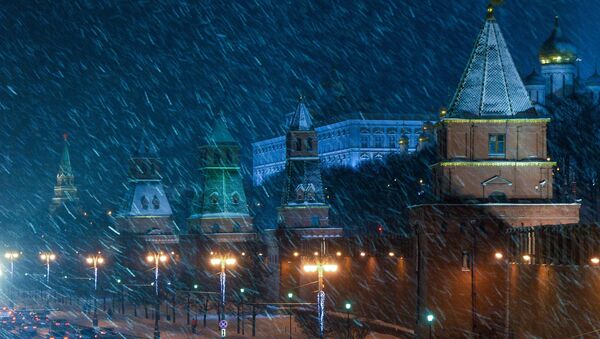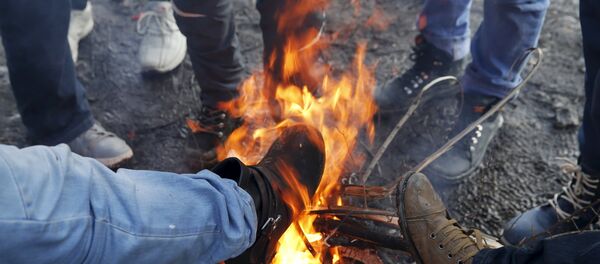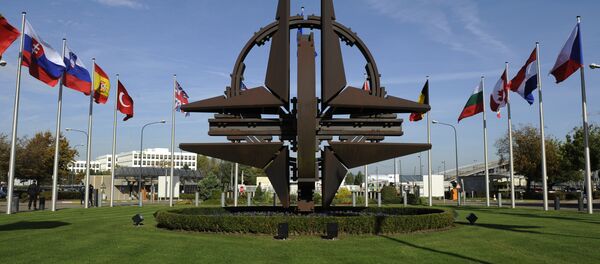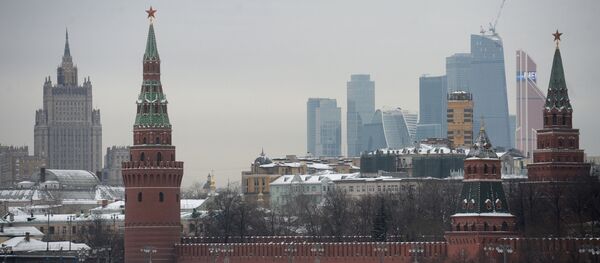The 52nd session of the Munich Security Conference, a major global forum for the discussion of security policy, opens on February 12, and will be attended by dozens of high-ranking officials from around the world, including Russian Prime Minister Dmitri Medvedev.
This year, the report released by organizers ahead of the forum, setting the tone for the event, is titled "Boundless Crises, Reckless Spoilers, Helpless Guardians," and features discussion on a wide range of security problems, from the wars in Syria and Ukraine to the dangers of terrorism, threats to the Schengen Zone agreement and the political and economic stability of the European Union.
Ultimately, the report pessimistically suggests, "the world, especially as seen from the West, may indeed be in its worst shape since the end of the Cold War."
"Europe," the report notes, "has so far failed to build a credible common foreign and security policy as envisaged by the Treaty of Lisbon, with institutional arrangements for decisive crisis management actions. Instead, Brussels continues to be handicapped by multiple major problems: shaky agreement on sanctions against Russia; continuing question marks surrounding Greece and the euro; the threat of 'Brexit' and of re-erected borders; and, maybe most importantly, a resurgence of illiberal right-wing nationalism and populism."
Russia: 'Unpredictable' and 'Dangerous'
Citing a ranking of the 'top 10 risks for 2016,' compiled by the New York-based think tank Eurasia Group, the report puts Russian President Vladimir Putin on a par with Turkey's Recep Tayyip Erdogan as a "leader of an unruly pack" of "unpredictable" leaders.
"Russia under Vladimir Putin," the report states, "has been keen to demonstrate its status as a key global player, but its economy tells a different story." Moreover, attempting to put the blame for the crises in both Ukraine and Syria on Russia's shoulders, the report complains that a "durable settlement of the Ukraine conflict envisaged a year ago has not materialized," while "in Syria, Putin has demonstrated his determination to play a role in any post-Assad Syrian arrangement, without much regard for the continuing plight of the Syrian population."
Incidentally, what the report does not get into is how exactly the Ukrainian civil war is Russia's fault. Nor is it clear how Russia's assistance to the Syrian government, which is helping to prevent the country from falling to Daesh and other radical Islamist militants, shows 'disregard' for Syrians.
In its own analysis of the report, independent Russian newspaper Svobodnaya Pressa spoke to Sergei Yermakov, deputy director of the Tauric Information-Analytical Center at the Russian Institute for Strategic Studies, who suggested that blaming Russia is actually a habitual response to the failings of the EU project.
"The report factually states that the EU has acted in such a way that we can forget about the project for a Greater Europe. The EU is in crisis, due to the aggravation of its internal contradictions. In fact, Brussels' own policy has failed to allow the EU to become a full-fledged formation – either economically or in the areas of security and defense. Hence such a nervous reaction to Russia; in European eyes, someone must be to blame, and it is customary for Russia to play the role."
With regard to the political and military crises in Ukraine and Syria, Yermakov notes, while European leaders may be genuinely concerned about the implications of these conflicts for their own security, they are "doing very little" to resolve them. The European Union and NATO, the analyst suggests, are organizations which have always "preferred to create only the appearance of conflict resolution."
"There is no conflict resolution in Ukraine, either," the analyst laments. "On the contrary, the war party operating in Kiev, propped up by Ukrainian nationalists, will inevitably contribute to fueling the conflict. Plus, Kiev today is a stronghold for the trans-Atlantic war party, which advocates the strengthening of the policy aimed at 'containing' Russia."
The report, Yermakov notes, seems to indicate that Europe, unfortunately, does not want to recognize Brussels' role in provoking the confrontation with Moscow. This confrontation, he recalls, did not begin in 2014 with the Ukraine crisis, but much earlier, when NATO and the EU decided on its eastward expansion, up to and including the territories of the former Soviet Union.
"In short, on the eve of the Munich Security Conference, the West realistically describes the current situation, but has removed from the agenda the main question: who is to blame for the confrontation, and what lessons might be learned?"
Ultimately, the analyst suggests, Russian leaders should take away from the report the fact that "an unpleasant game is developing around Russia. On the one hand, NATO and the EU are offering signals that they are willing to compromise – for example, by resuming the work of the NATO-Russia Council (forgetting, of course, to say on whose initiative its work was interrupted). On the other hand, the US declares that it is creating forward deployment bases in Europe, while NATO ships patrol the waters near Crimea."
"In practice, this means that a sophisticated policy of containment and reduction [of pressure]. Such a policy is becoming the trend in relations between Russia and the West," Yermakov concludes.







